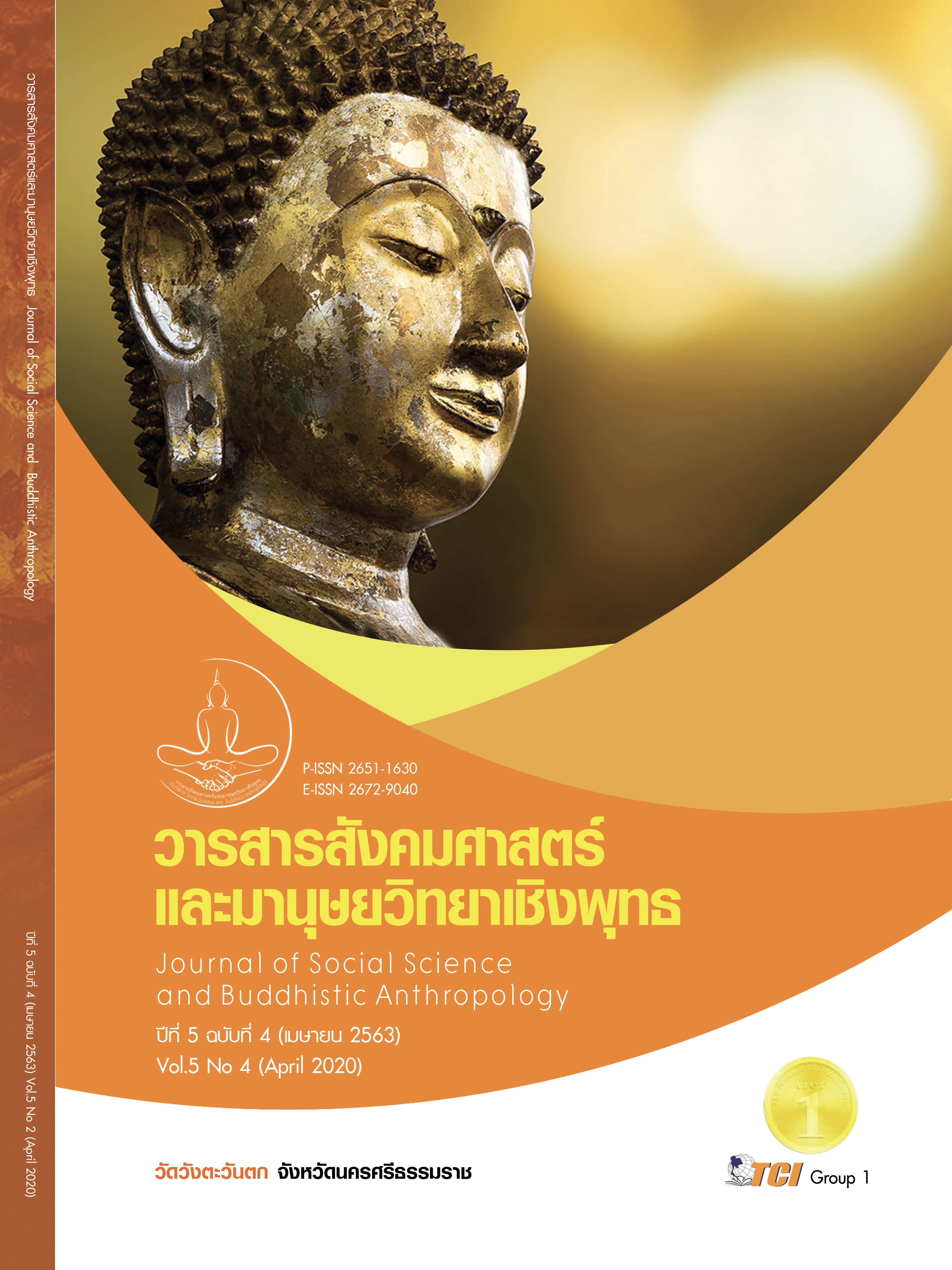QUALITY OF WORK LIFE AND WORK ENVIRONMENT AFFECTING ORGANIZATIONAL COMMITMENT OF EMPLOYEE
Keywords:
Quality of Work Life, Work Environment, Organizational CommitmentAbstract
The objective of this article is to study the quality of work life and the working environment that affect employee organization commitment. This research using quantitative research by survey research method. The population is 909 employees of Furukawa Fitel (Thailand) Company Limited which is located in Phra Nakhon Si Ayutthaya Province. Calculated from the known formula of the population size of Taro Yamane . There are a total of 310 samples. This study used quota sampling to get samples from all departments. After that, randomly selected as convenient. The instrument used in the research was a questionnaire for checking the confidence of the questionnaire that measured all 3 variables with the Cronbach alpha coefficient greater than .85. The statistics used to analyze the data include frequency, percentage, mean and standard deviation. Moreover, the hypothesis was tested by Multiple Regression Analysis. Research Findings: the quality of work life is high level in term of social integration is highest mean, work environment is high level in term of security is highest mean and organizational commitment of employees are high level in term of affective commitment is highest mean. The result from hypotheses testing has also found that the quality of work - life in terms of organizational democracy and social work can affect the level of organizational commitment. Additionally, the research also indicated that the work environment in terms of safety and security, organization and management, wages, specific characteristics of the job, societal characteristics of the job, and communications have affected the level of organizational commitment at 0.05 statistical significance level.
References
กฤษฏ์ เติมทิพย์ทวีกุล และกฤษดา เชียรวัฒนสุข. (2562). บุพปัจจัยที่ส่งผลต่อการคงอยู่กับองค์กรของช่างเทคนิคและวิศวกรในอุตสาหกรรมพลาสติกขนาดกลางและขนาดย่อม: กรณีศึกษาโรงงานอุตสาหกรรมพลาสติกในจังหวัดปทุมธานี. วารสารสันติศึกษาปริทรรศน์ มจร., 7(3), 823-837.
กฤษดา เชียรวัฒนสุข และคณะ. (2561). ความสัมพันธ์ระหว่างรูปแบบภาวะผู้นำ รูปแบบภาวะผู้ตาม กับความผูกพันต่อองค์กรของพนักงาน. วารสารสหวิทยาการวิจัย (ฉบับบัณฑิตศึกษา), 7(1), 25-34.
กฤษดา เชียรวัฒนสุข และคณะ. (2562). สภาพแวดล้อมในการทำงานและแรงจูงใจที่มีผลต่อประสิทธิภาพทีมงาน: ข้อมูลเชิงประจักษ์จากบริษัทผลิตอุปกรณ์คอมพิวเตอร์แห่งหนึ่ง. วารสารวิชาการมหาวิทยาลัยกรุงเทพธนบุรี, 8(2), 219-230.
ปริญธร สุทวีทรัพย์. (2553). คุณภาพชีวิตของเจ้าหน้าที่สินเชื่อธนาคารไทยพาณิชย์ขนาดใหญ่ในกรุงเทพมหานคร. ใน สารนิพนธ์บริหารธุรกิจมหาบัณฑิต สาขาการจัดการ. มหาวิทยาลัยเชียงใหม่.
ยิ่งยศ จันปาน และจันทนา แสนสุข. (2559). คุณภาพชีวิตในการทำงาน สภาพแวดล้อมในการทำงาน และความพึงพอใจในการปฏิบัติงานของพนักงาน บริษัทเบสเท๊กซ์ (ประเทศไทย) จำกัด. วารสารสุทธิปริทัศน์, 30(94), 98-111.
รุ่งอรุณ ศิลป์ประกอบ. (2558). ความสัมพันธ์ระหว่างคุณภาพชีวิตการทำงานกับความผูกพันต่อองค์การของบุคลากรโรงพยาบาลธรรมศาสตร์เฉลิมพระเกียรติ. ใน สารนิพนธ์บริหารธุรกิจมหาบัณฑิต สาขาวิชาบริหารธุรกิจ. มหาวิทยาลัยราชภัฏวไลยอลงกรณ์ ในพระบรมราชูปถัมภ์.
ศศินันท์ ทิพย์โอสถ และกฤษดา เชียรวัฒนสุข. (2556). การรับรู้การสนับสนุนจากองค์การของพนักงานที่มีผลต่อการปฏิบัติงานในภาคธุรกิจธนาคาร. ใน รายงานการประชุมวิชาการระดับชาติ RMUTT Global Business and Economics Conference (TBEC), 915–930. มหาวิทยาลัยเทคโนโลยีราชมงคลธัญบุรี.
สุวิมล ติรกานันท์. (2550). การสร้างเครื่องมือวัดตัวแปรในการวิจัยทางสังคมศาสตร์ : แนวทางสู่การปฏิบัติ. (พิมพ์ครั้งที่ 1). กรุงเทพมหานคร: โรงพิมพ์แห่งจุฬาลงกรณ์มหาวิทยาลัย.
Allen, N. J. & Meyer, J. P. (1990). The measurement and antecedents of affective, continuance and normative commitment to the organization. Journal of Occupational Psychology, 63(1), 1–18.
Deery, M. & Jago, L. (2015). Revisiting talent management, work-life balance and retention strategies. International Journal of Contemporary Hospitality Management, 27(3), 453-472.
Gilmer, V. B. (1973). Applied Psychology. New York: Mc Graw-Hill.
Walton, R. E. (1973). Quality of Working Life: What is it? Sloan Management Review, 4(7), 20-23.
Yamane, T. (1973). Statistics: An Introductory Analysis (3rd ed.). New York: Harper and Row Publications.









